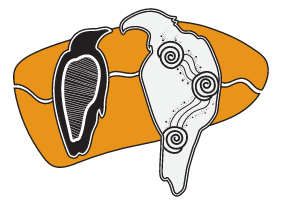Behind the scenes of wawa biik – a yarn with Sharna
November 28, 2023
Sharna Crosbie is the Cultural Experiences Development Manager at wawa biik. Sharna is not a First Nations person but feels honoured to work alongside the Taungurung community in her role. Sharna grew up on Bunurong Country in the Frankston area, now lives on Dja Dja Wurrung Country, Castlemaine. She has lived and breathed travel for both work and pleasure. In her opinion, the connections and learnings that travel brings far outweigh any formal education. It is her travels that have made her a more conscious and compassionate global citizen, and sparked a passion for designing experiences that have positive impact on people and place. With an extensive career in tourism development and marketing, Sharna has led the small but deadly wawa biik team, through what has been a slow and considered journey to bring wawa biik to life. We yarn with Sharna about her learnings from this wawa biik journey and the importance of First Nations tourism.

Tell us about how wawa biik was started
Back in 2018/19, TLaWC was receiving lots of enquiries from people and organisations interested in cultural awareness training. At the same time there was a greater interest in and development of, First Nations tourism across Australia. After some careful analysis TLaWC decided that tourism would be a good next step in their journey to celebrate culture and build advocacy and networks that would support Taungurung aspirations. Thanks to a grant from DJSIR, TLaWC was able to purchase a tour bus and undertake all the necessary processes to get wawa biik off the ground. For Taungurung People, spending time on Country, immersing in cultural practices and sharing stories, is healing. So wawa biik was built with a strong purpose for community wellbeing and advocacy, but it is also a more meaningful way for for visitors to learn about culture too, so it's a win-win.
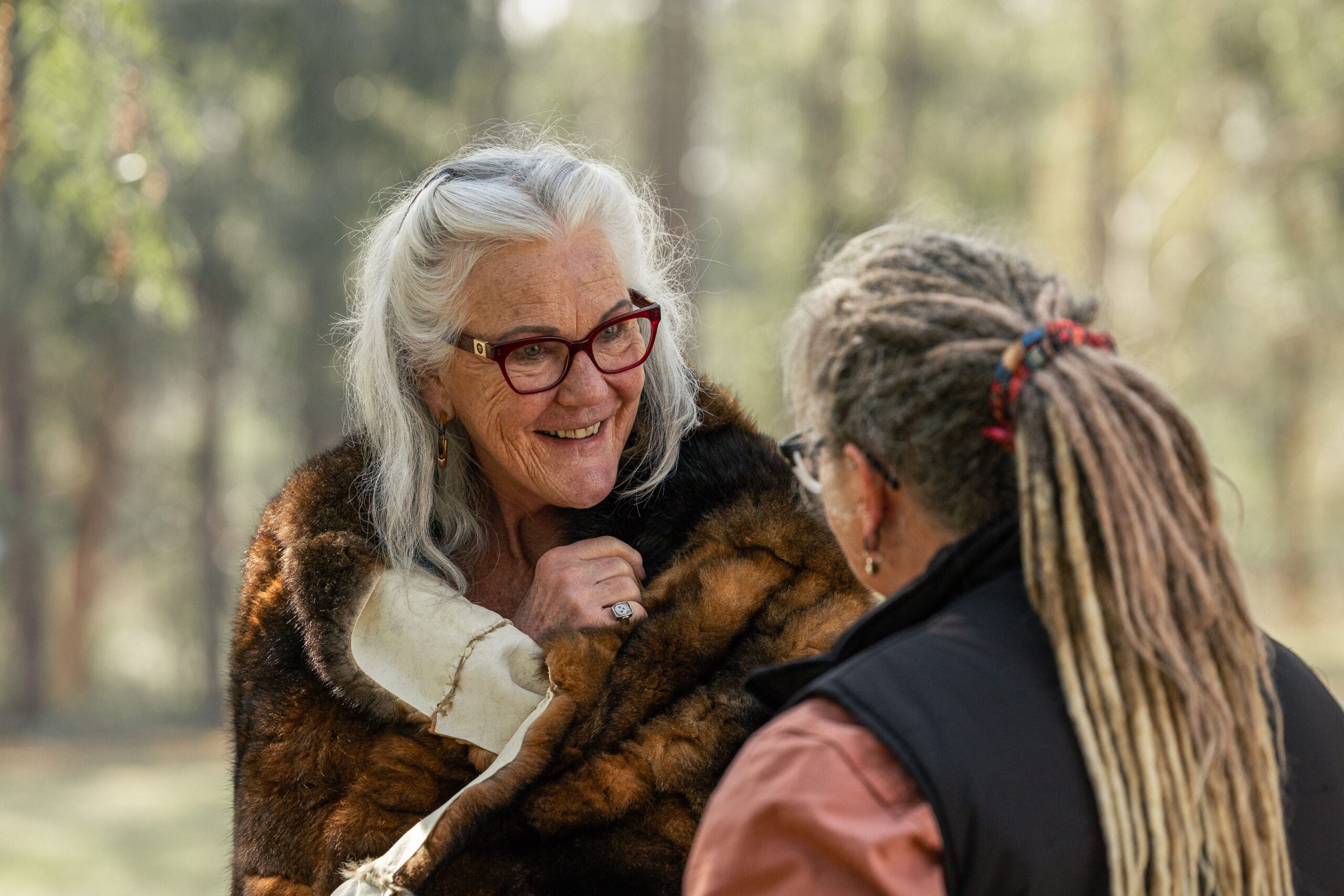
wawa biik is tourism but it's not tourism, can you explain?
Tourism has always been about the glossy, sanitised story of places, largely curated around the needs of ‘’consumers” – enticing them to eat, drink, sleep, see and spend in a destination, creating a supplier-consumer relationship. This can be extractive and damaging to communities and the environment when tourism is driven by economic goals alone. wawa biik takes a different approach. It firstly recognises Taungurung Guides as Custodians/ hosts, and visitors not as consumers but people with a desire to learn and connect. wawa biik is driven not by consumer needs or economic goals but by a deep purpose to elevate the Taungurung story and perspectives, promote caring for Country values and build reciprocity and relationships that keep culture strong. Like all First Nations led tourism, wawa biik shares the cultural stories that often get overlooked, undervalued, or misrepresented in the media, to bring a more layered, accurate and meaningful narrative to visitors' experience of place. Tourism when crafted with purpose creates educational opportunities to yarn together, and to try and understand and connect with each other and our shared place in the world. wawa biik experiences feel nourishing. Our guests love the opportunity to get a little out of their comfort zone, to grow and to contribute.
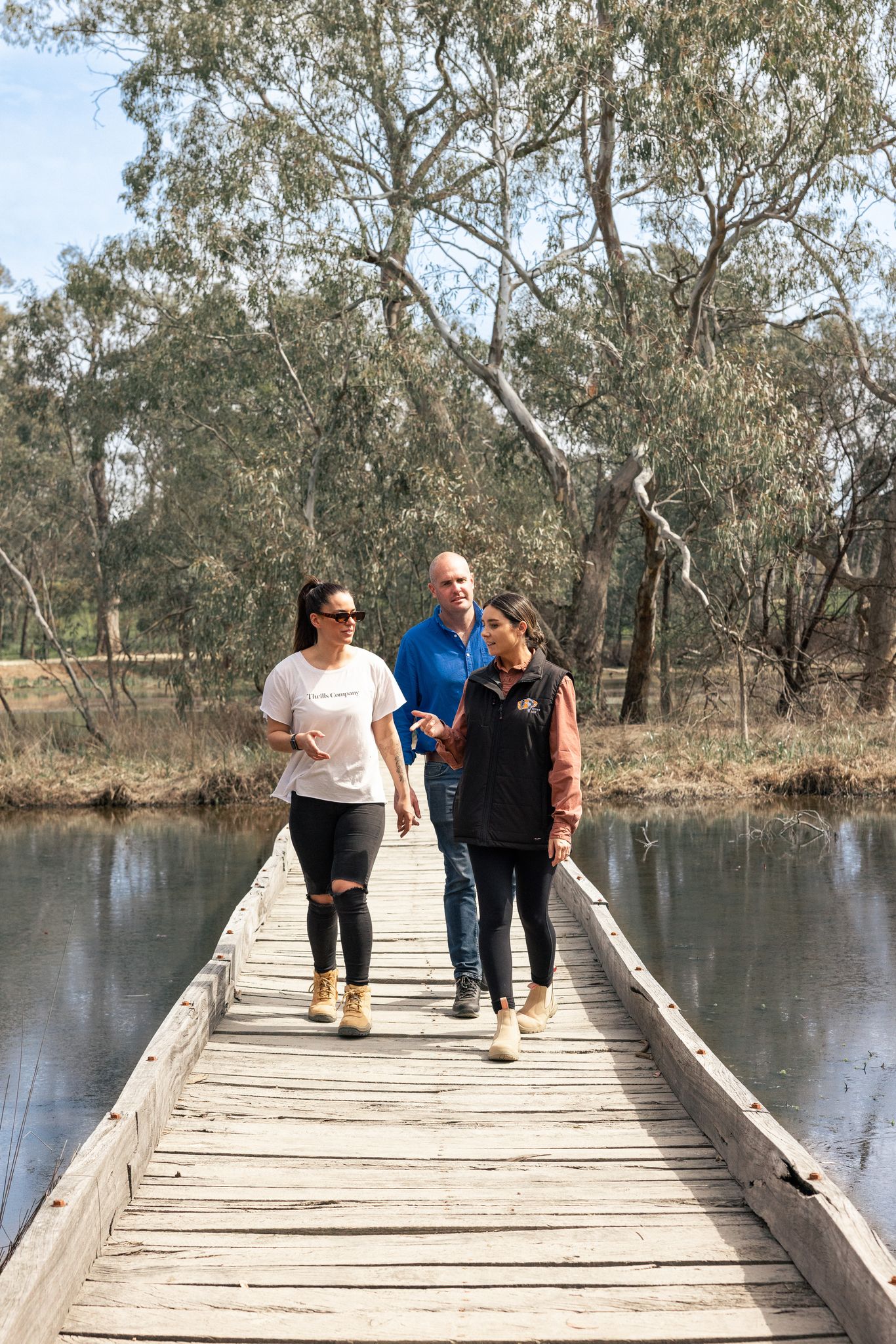
What have been some key learnings in your role?
Working for a Traditional Owner Corporation requires a focus on the big picture goals and values. We are working towards a future where Taungurung culture and the community are respected and elevated to self-determine their cultural obligations, rights and healing on Country. The Taungurung community is strong, resilient, extremely generous, knowledgeable, and great leaders. I am happily taking a back seat as Taungurung People introduce me to cultural ways of being and doing in the business world and life. There is a deep respect and care for Country at the heart of it all which I love.

What have been key learnings for you about First Nations tourism?
First Nations tourism is thriving, not just here in Australia but globally. This is because First Nations People see tourism as a great way to engage and educate about their culture knowing that there are many people that seek connection with First Nations People. Many people feel guilty at not knowing more about First Nations culture and are ashamed of what’s happened in our past. There is also a longing to feel more connected to the land– so it makes sense that we are turning to First Nations People with our vulnerabilities and our open hearts and creating dialogue. We still have a long way towards reconciliation in Australia, but First Nations led tourism is a meaningful way to break the ice and start making inroads to connections and understandings. I think that if we can reach some common ground through tourism, it will be a huge step forward.
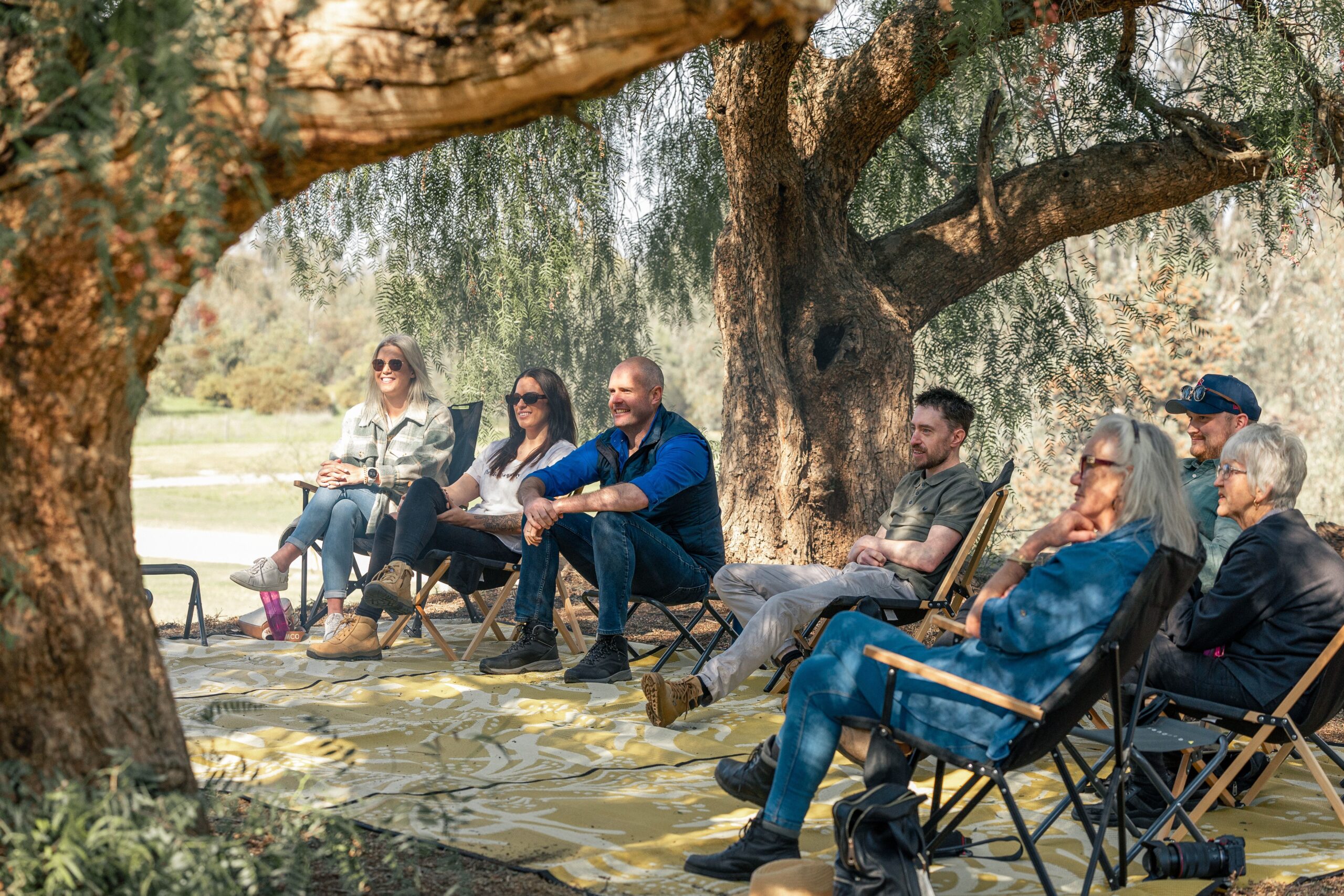
What have been the highlights this year?
So many! The first tour was incredible as it was so nice to finally get going after so long in the lead up. The highlights for me are seeing the guides standing in front of the group and being so generous in what they’re sharing. I never tire of the Welcome Smoking Ceremonies - they are special every time. I always love hearing people open up and share in the yarning circles, we really get some beautiful people on our tours. We have lots of laughs behind the scenes too – our team days are hilarious.

Advice for respectful ways to work with wawa biik?
Firstly, it requires an understanding that tourism is only a small component of what we do within the Taungurung Land and Waters Council. TLaWC is the corporate representative and ‘face’ of the Taungurung People and serves to uphold their interests with respect to Culture and Country. Tourism is an important engagement strategy and education platform but everything we do needs to respect the bigger issues and priorities that TLaWC is working towards. My advice for anyone seeking to engage and partner with wawa biik is to spend the time to get to know us, walk on Country with us and understand what we’re working towards. In the spirit of generosity, you could also think about not what you can gain from the partnership but what you can bring.
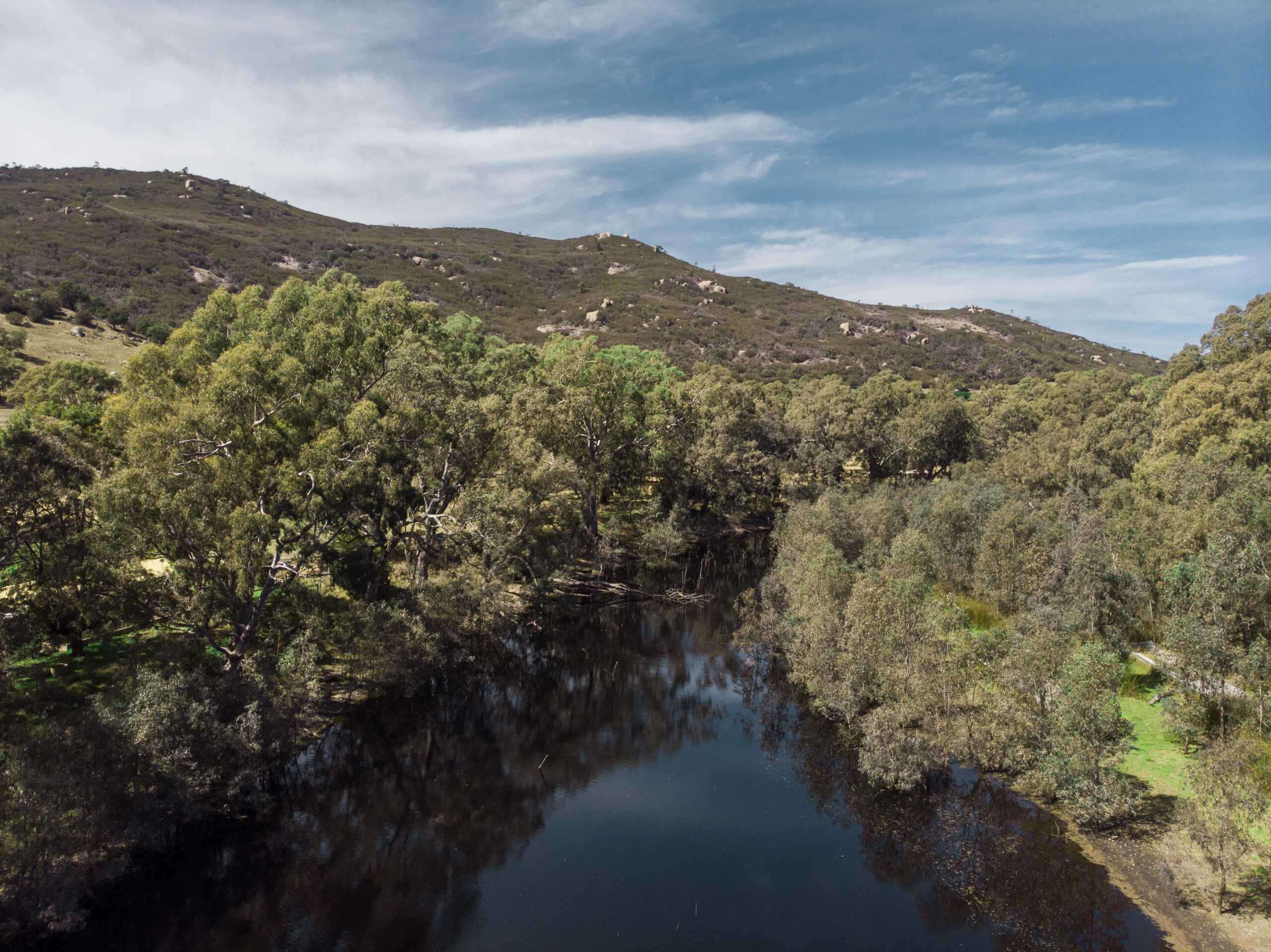
Advice for visitors keen to be respectful on tour?
There’s no need to worry. Come along as you are. Everyone is equal and respected on our experiences. Our team will make you feel at ease, give you the head's up if there are any protocols to note and make sure there are plenty of laughs. It’s honesty a very down to earth and easy going space. My only advice might be to perhaps put your phone away and be truly present. How often would you spend time on Country with Custodians? It’s a great opportunity to get immersed in the yarns and breathe in the smells, sights and sounds of Country around you, you’ll leave better for it.
